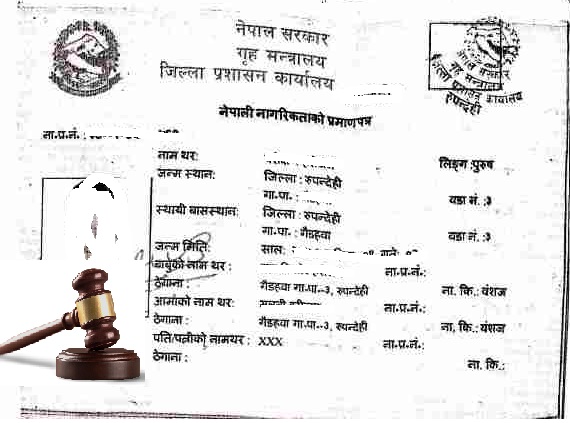Introduction:
Citizenship is the cornerstone of a nation, representing the legal and political relationship between an individual and their country. In Nepal, citizenship holds immense significance as it determines a person’s rights, privileges, and responsibilities. The citizenship laws of Nepal have evolved over the years to reflect the changing socio-political landscape of the nation. This article explores the concept of citizenship in Nepal, its importance, and recent developments in the country’s citizenship laws.
Understanding Nepali Citizenship:
Nepal follows the principle of jus sanguinis, meaning that citizenship is primarily determined by descent. This means that an individual can acquire Nepali citizenship through their parents, irrespective of the place of birth. Nepali citizenship law recognizes both the concept of citizenship by descent (through parents) and citizenship by birth (within Nepal’s territory). Additionally, foreign nationals can also apply for naturalization to become Nepali citizens, provided they fulfill certain criteria.
Citizenship by Descent:
Nepali citizenship is primarily obtained through descent, and this category is further divided into two sub-categories: citizenship by descent through the father (prior to the new amendment) and citizenship by descent through either parent (including the mother). The recent constitutional amendments have brought significant changes to the citizenship laws, ensuring gender equality by allowing Nepali citizenship to be passed on through either parent.
Citizenship by Birth:
Citizenship by birth is granted to individuals born within Nepal’s territory, regardless of their parents’ nationality. This provision ensures that every child born in Nepal is entitled to Nepali citizenship, promoting inclusivity and equal rights.
Naturalization and Foreign Nationals:
Foreign nationals residing in Nepal can apply for naturalization to become Nepali citizens. The process involves meeting certain requirements, including continuous residence in Nepal for a specified period, renunciation of any existing citizenship, and a sound knowledge of the Nepali language and culture. Naturalization provides an avenue for individuals who have made Nepal their home to integrate fully into the society and enjoy the benefits of citizenship.
Recent Developments:
In recent years, Nepal has witnessed significant changes in its citizenship laws, aimed at addressing gender inequality and ensuring equal citizenship rights for all. The constitutional amendment of 2015 introduced provisions that allow citizenship to be passed on through either parent, granting equal rights to both Nepali men and women to confer citizenship to their children. This progressive step has empowered Nepali women and bolstered gender equality within the country.
Challenges and Future Outlook:
While Nepal has made commendable progress in reforming its citizenship laws, challenges remain. The issue of citizenship for children with unknown parents or those born to Nepali mothers and foreign fathers continues to be a subject of debate. Striking a balance between ensuring national security and upholding the principles of inclusivity remains a challenge for policymakers.
Conclusion:
Citizenship in Nepal is a fundamental aspect of individual identity, defining one’s rights, privileges, and responsibilities within the nation. The recent amendments to Nepal’s citizenship laws have aimed to address gender inequality and promote inclusivity. By recognizing citizenship through either parent and granting citizenship by birth, Nepal has taken significant steps toward ensuring equal rights for all its citizens. However, further efforts are needed to address remaining challenges and create a citizenship framework that fosters inclusivity, social cohesion, and national security.
 Nepali Law A complete legal information portal
Nepali Law A complete legal information portal



